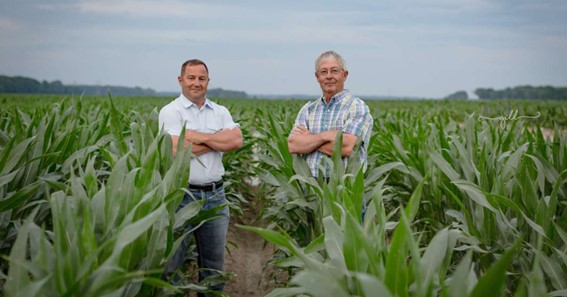Are you curious to know what is contract farming? You have come to the right place as I am going to tell you everything about contract farming in a very simple explanation. Without further discussion let’s begin to know what is contract farming?
In the realm of agriculture, contract farming has emerged as a significant and mutually beneficial practice that fosters collaboration between farmers and agribusinesses. Contract farming is a system where farmers enter into agreements with buyers, processors, or exporters to produce and supply agricultural products as per specified terms and conditions. This arrangement offers numerous advantages to both parties involved and has become a popular model in modern agriculture. In this blog, we will explore the concept of contract farming, its key features, benefits, and the role it plays in promoting agricultural prosperity.
What Is Contract Farming?
Contract farming is a contractual arrangement between farmers and agribusiness firms or buyers, where the terms and conditions of production and supply of agricultural products are predetermined. Under contract farming, farmers commit to producing a specific quantity and quality of crops or livestock, adhering to certain production practices and timelines. In return, the buyer or agribusiness guarantees a market for the produce at agreed-upon prices or terms.
Key Features Of Contract Farming:
- Pre-Contractual Agreements: Before commencing contract farming, farmers and buyers negotiate and sign a formal agreement that outlines the terms of the contract. This agreement includes details of the crop to be grown, the quantity, quality standards, pricing, delivery schedules, and any support or services provided to farmers.
- Risk Sharing: Contract farming allows for risk sharing between farmers and buyers. While farmers are assured of a market for their produce and stable prices, buyers can secure a consistent supply of raw materials, reducing their supply chain risks.
- Technical Assistance: Agribusiness firms often provide technical assistance, training, and inputs to farmers to ensure compliance with quality standards and sustainable farming practices.
- Price Stability: Contract farming typically involves predetermined prices or price formulas, offering price stability to farmers and reducing price fluctuations in the market.
Benefits Of Contract Farming:
- Market Access: Contract farming guarantees a ready market for farmers, reducing their dependency on volatile market conditions and middlemen.
- Income Security: Farmers receive advance payments or timely payments for their produce, providing them with financial stability and security.
- Technology Transfer: Agribusiness firms often provide modern agricultural techniques and technology to farmers, enhancing their productivity and efficiency.
- Quality Assurance: Contract farming encourages adherence to quality standards, ensuring that the produce meets specific requirements for domestic or international markets.
- Reduced Post-Harvest Losses: Contract farming helps reduce post-harvest losses, as farmers produce according to buyer demand and specifications, minimizing wastage.
Role In Agricultural Prosperity:
Contract farming plays a crucial role in promoting agricultural prosperity by fostering collaboration and integration in the agricultural value chain. It encourages sustainable agricultural practices, provides market access to farmers, and boosts overall productivity. Moreover, contract farming contributes to the economic growth of rural communities, empowers farmers, and strengthens the agribusiness sector.
Conclusion:
Contract farming exemplifies the power of collaboration and partnership in the agricultural sector. By facilitating mutually beneficial agreements between farmers and agribusiness firms, contract farming enhances market access, income security, and technological advancements in agriculture. As the world continues to grapple with food security and sustainable agriculture, contract farming stands as a promising model that drives agricultural prosperity, supports rural livelihoods, and fosters a sustainable and resilient farming ecosystem.
FAQ
What Does A Contract Farmer Do?
For example, farmers provide labor, housing, and equipment under livestock and poultry production contracts, while contractors provide such other inputs as feed, veterinary and livestock transportation services, and young animals.” Poultry contracts are the classic example of how contracts can undercut farmers.
What Is Contract Farming In The Usa?
At the heart of contract farming (CF) lies an agreement between farmers (producers) and buyers: both agree in advance on the terms and conditions for the production and marketing of farm products.
What Is A Crop Contract?
A contract is a legal agreement between a farmer and another person or firm to produce a specific type, quantity, and quality of crops or livestock. Farmers use contracts, with set pricing (or a pricing formula) or fees, instead of traditional cash sales to manage income risks.
What Are Futures Contracts In Farming?
Farmers use futures contracts to secure a price and to protect price risks. For example, a corn producer may decide to sell a corn futures contract in May, after planting is completed, for December delivery.
I Have Covered All The Following Queries And Topics In The Above Article
What Is Contract Farming In India
What Is Contract Farming Class 12
What Is Meant By Contract Farming
What Is Contract Farming Upsc
What Is Contract Farming In Hindi
What Is Mean By Contract Farming
What Is The Contract Farming
What Is Contract Farming System
What Is The Meaning Of Contract Farming
What Is Contract Poultry Farming
What Is Contract Farming
What is the contract farming strategy
What is the meaning of contract farming

